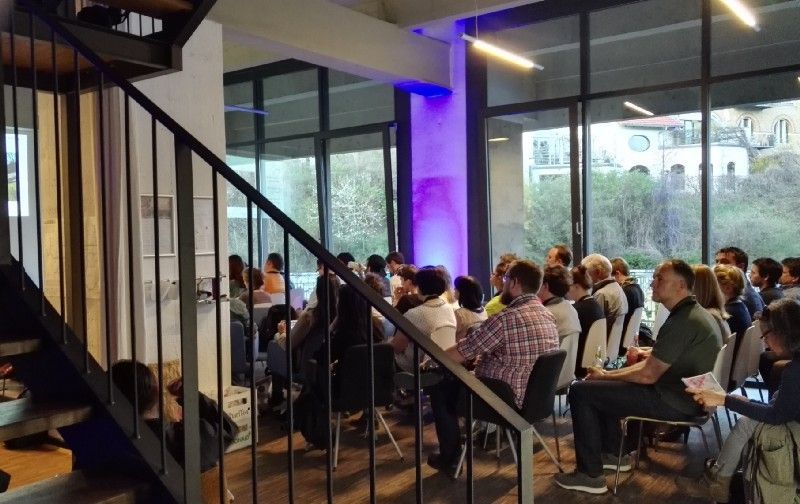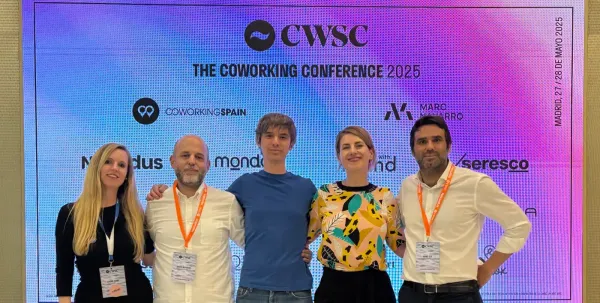German Coworking Conference Cowork2017 — a review
From the 31th of March until 2nd of April Leipzig was definitely the place to be. We went there to check out the German Coworking Scene at Cowork2017, the annual German Coworking Conference. This was their 4th year running this event, bringing together coworking space founders, community managers, association members and plenty of interesting people to discuss the current landscape, as well as, future perspectives for the German Coworking scene.
Keynotes about what constitutes a “Feel Good Management” from Monika Kraus-Wildegger (GOODplace) and “Digital Changes in Companies“ from Dr. Alexandra Schmied (Bertelsmann Stiftung) opened this year’s conference on Friday night at the Social Impact Lab Leipzig. Both presentations pointed out international discussions around new models of work. One of the questions that came up was: “What new kind of working forms and conditions of environment are requested to bring back the joy of working in (shared) offices?”
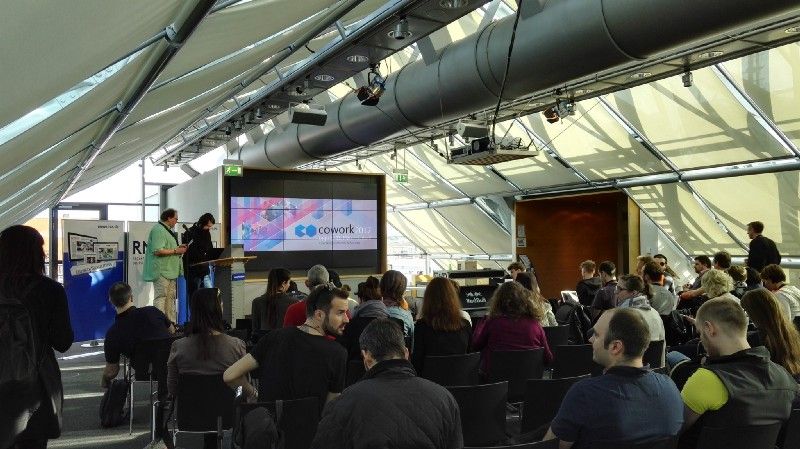
This question generated diverse opinions and points of view — the ongoing discussion continued during the barcamp sessions of the second day at Basislager Leipzig. For example, Jana from co-work-play and Bianca from Krämerloft presented how they shaped their spaces for a parent / child coworking space. The legal bases for offering coworking spaces with childcare are quite tricky in Germany, but with a good grasp of the facts, they were able to make it possible.
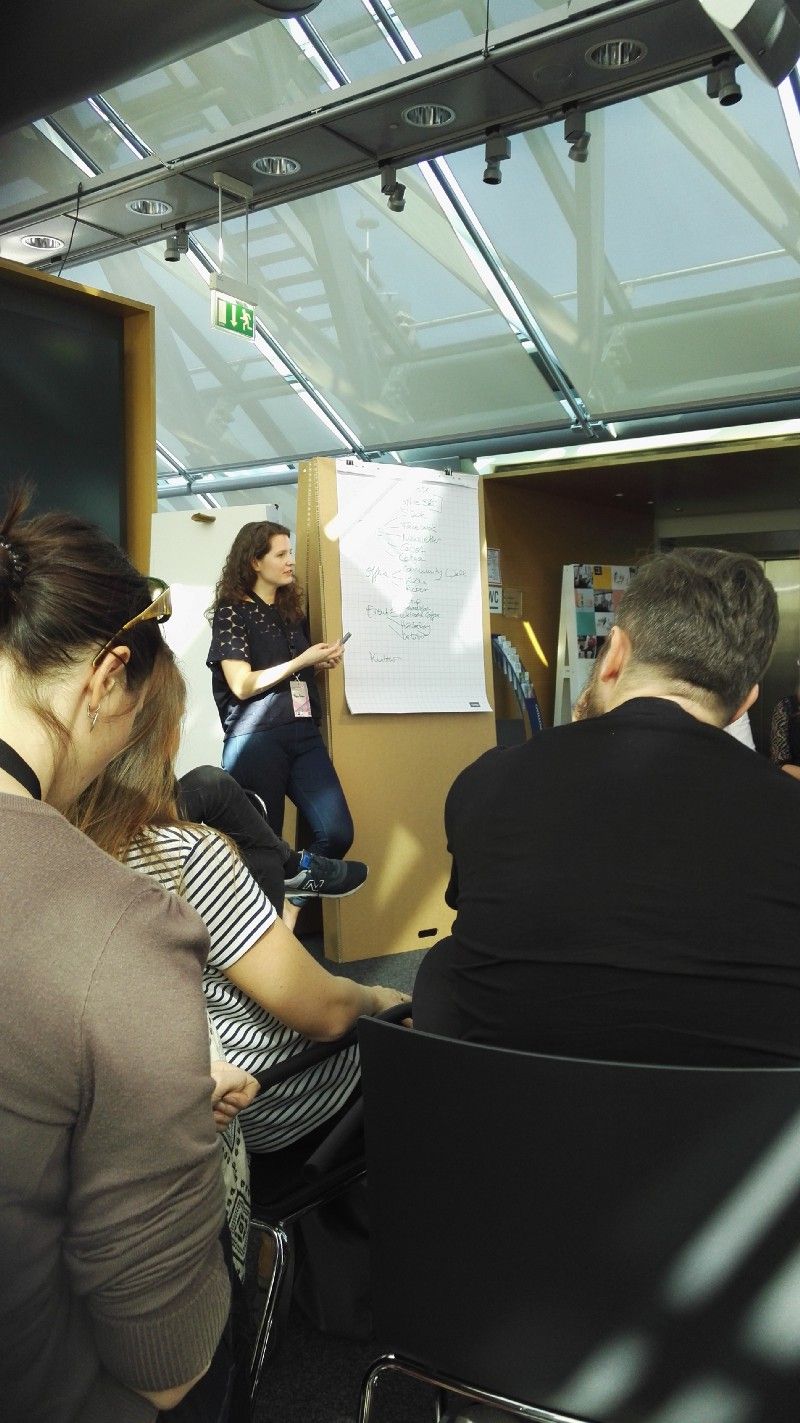
The session hosted by Teelke from betahaus Hamburg was a good overview of useful community management tools including Cobot. We were particularly happy to have received some great feedback on our work during this session, and to have met some of our users personally.
‘Further coworking in the countryside’ was a topic which gained a lot of interest, and was examined in a discussion led by Harald from Coworking Herrenberg. He found that more often, smaller suburbs discover coworking as a solution to the challenges faced by commuting.
Switzerland served as a role model here by establishing Village Office as a cooperative, which runs local coworking spaces throughout the Swiss countryside. It will be exciting to keep an eye on this initiative and how we can achieve comparable results here in Germany.
‘How cooperatives can collaborate with coworking concepts’ was a topic Florian from coworking M1 brought up in a session. He shared his expertise on running a culture centre that includes a coworking space in Mainz, as well as what this shared concept can contribute to the city.
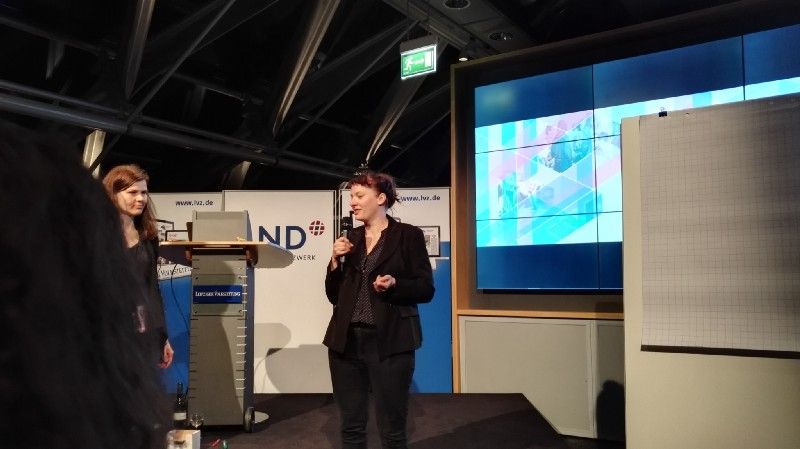
The discussions soon lead into the evening. After a delicious dinner, Alexandra and Johanna set up the famous coworking quiz. Congrats to the winning team, who quickly left the other two opposing teams behind and the ‘holy coworking’ cow trophy was joyfully handed over to them. We hope they will cherish it! Finally, an extensive party in the dome of the Leipziger Volkszeitung was the crowning glory of an eventful day.
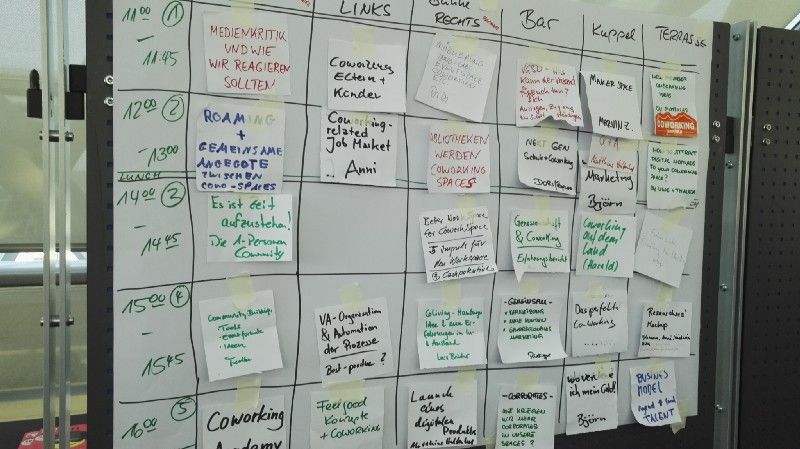
Of course a lot more topics were on the session board; to find out more detailed information you can visit the trello board, published by the German Coworking Federation (GCF).
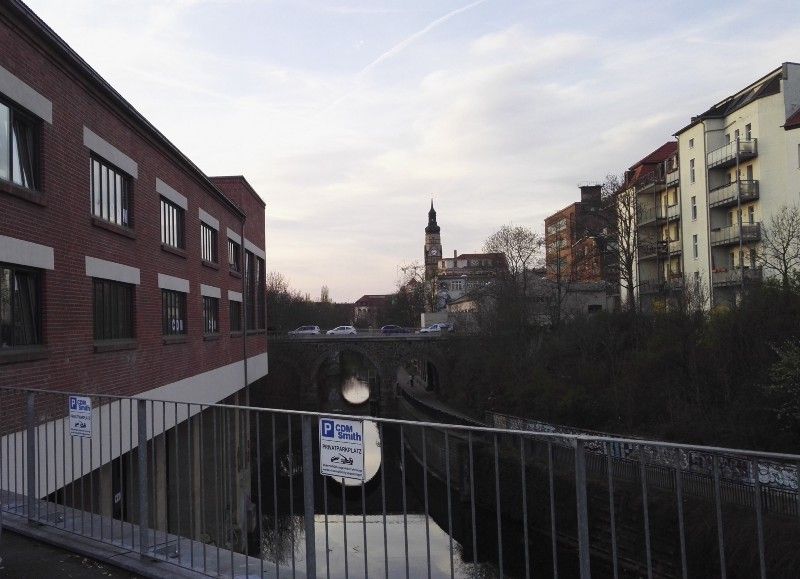
On the next and final day of the conference, the crowd again met at the Social Impact Lab Leipzig. The great view from the riverside lessened the pain of the previous night’s festivities and the presentation and discussion panel of Prof. Reiner Schmidt (Hochschule Anhalt) refreshed all tired minds quickly. Using his ideas and questions in “A City as a Campus”, he was able to build a bridge to some points discussed at the barcamp the day before. Furthermore Prof. Schmidt was also able to successfully engage with many of the attendees to get them involved and start an interdisciplinary dialogue. We will see if some of these results will be presented at the next Cowork conference, 2018 in Bremen (location tba.)
Inga Höltmann, business journalist, gave the closing speech. Titled: “Beyond coworking — how we will work in the future”, it which came with the byline: “When you digitize a shitty process, then you will have a shitty digital process” („Wenn sie einen Scheißprozess digitalisieren, dann haben sie einen scheiß digitalen Prozess.“). Her conclusion: What the future of coworking looks like is uncertain.
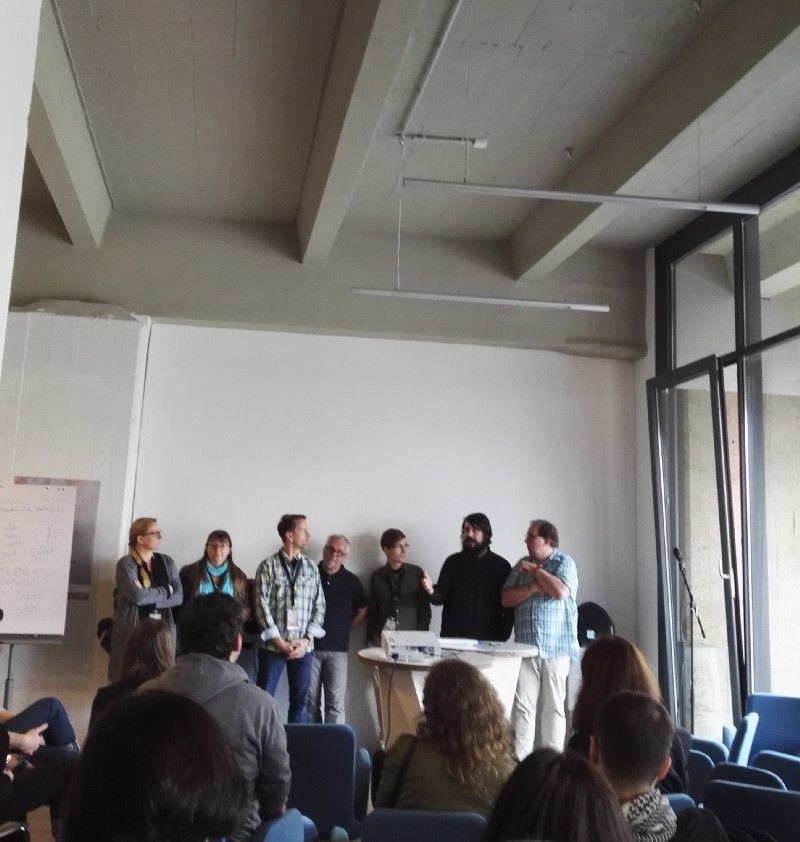
Overall it was a great conference and we loved being there. Again, we want to say thank you to all who organized the conference including all helping hands and contributors. We are looking forward to seeing you again next year! In the meantime, if you ever have questions for us, send us an email to info@cobot.me.
Happy coworking!
Your Cobot Team
